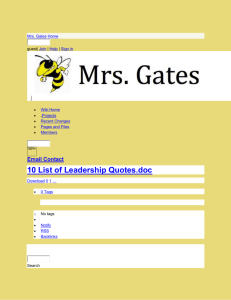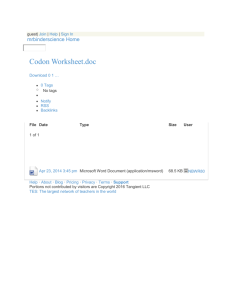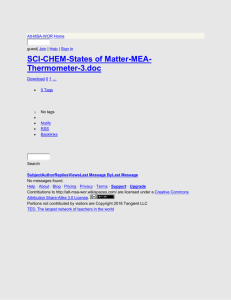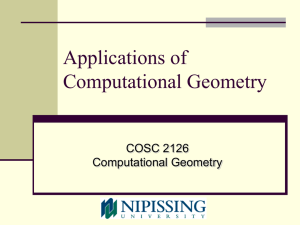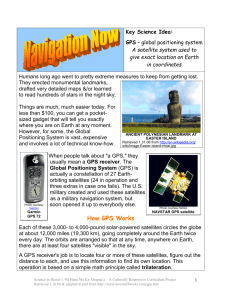lecture 2C Location
advertisement
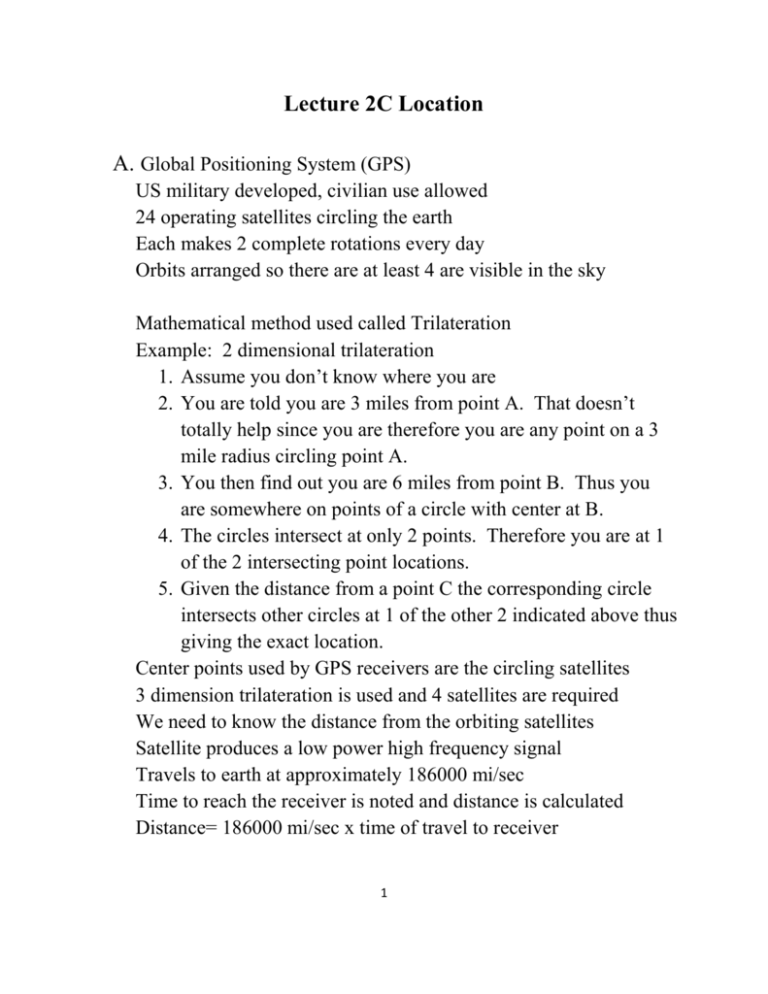
Lecture 2C Location A. Global Positioning System (GPS) US military developed, civilian use allowed 24 operating satellites circling the earth Each makes 2 complete rotations every day Orbits arranged so there are at least 4 are visible in the sky Mathematical method used called Trilateration Example: 2 dimensional trilateration 1. Assume you don’t know where you are 2. You are told you are 3 miles from point A. That doesn’t totally help since you are therefore you are any point on a 3 mile radius circling point A. 3. You then find out you are 6 miles from point B. Thus you are somewhere on points of a circle with center at B. 4. The circles intersect at only 2 points. Therefore you are at 1 of the 2 intersecting point locations. 5. Given the distance from a point C the corresponding circle intersects other circles at 1 of the other 2 indicated above thus giving the exact location. Center points used by GPS receivers are the circling satellites 3 dimension trilateration is used and 4 satellites are required We need to know the distance from the orbiting satellites Satellite produces a low power high frequency signal Travels to earth at approximately 186000 mi/sec Time to reach the receiver is noted and distance is calculated Distance= 186000 mi/sec x time of travel to receiver 1 B. Radio Frequency Identification Tags (RFID) Replace Universal Product Code (UPC) bar code UPC is read only RFID tags are read and write (changed, updated and communicate) Electronic Readers are placed to read both passive and active tags Example of future possible use: 1. Pick up items at a supermarket 2. Leave store without going to a cashier 3. Electronic reader at exit reads your tagged id and item tags in your bag 4. Electronic reader is networked to send the total purchased cost info to your bank to transfer from your account to the store’s 5. Assuming ample balance to cover purchase you are allowed to exit 6. Smart refrigerator can check tags for shortage in house 7. When deficiency can automatically order 8. Items finished and thrown out can be monitored in the rubbish Other possible uses include 1. Tracking of people and pets Senior Citizens Children Dissidents and demonstrations (in concert with GIS) 2. Privacy Tastes Locations 2 C. Mobile Phones Network based techniques Tracked by knowing the cell sector of the base station Reading signal strength to primary and adjacent base stations Non invasive Handset Installed software Possible logging keystrokes, recording phone calls, storing text messages, as well as using phone's GPS to track the location, or the phone Carrier retrieving what it desires 3
